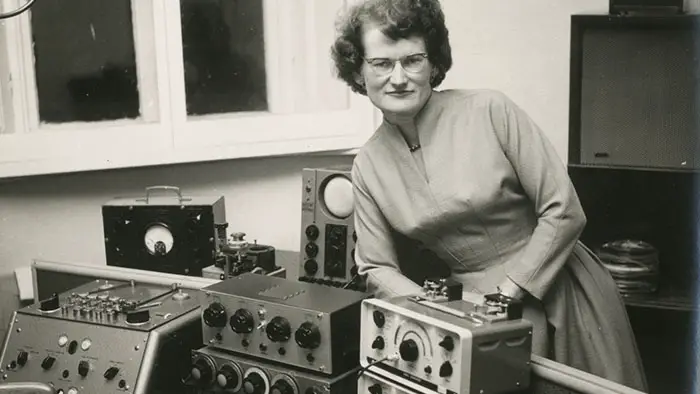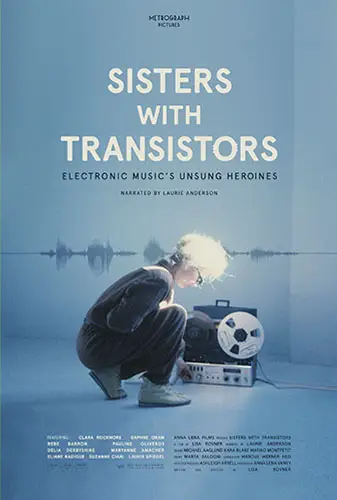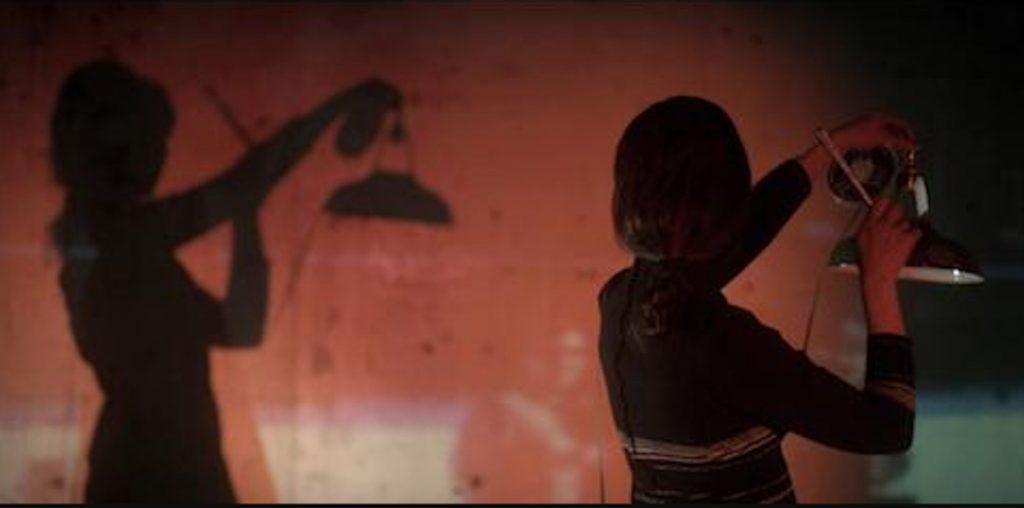
Since its inception, compositional electronic music has been recognized as an old boy’s club despite the prominence of women who, in many cases, pushed the boundaries and concepts of synthesized sounds further than they had ever gone before. Director Lisa Rovner examines these groundbreaking female composers in the documentary Sisters With Transistors.
First, let’s define the electronic music being discussed here. This is not EDM, aka electronic dance music, so there isn’t the constant pounding of house beats, breakbeats, or any kind of beats for the most part. This is a more esoteric music that relies on mood and feeling, and despite being designated as compositional, remains largely improvised in nature. This is the world of Karlheinz Stockhausen, Tangerine Dream, Klaus Schulze, Jean-Michel Jarre, Patrick Cowley, Tod Dockstader, and Richard Pinhas. All of them stand as contemporaries with the geniuses discussed here.

“…pushed the boundaries and concepts of synthesized sounds further than they had ever gone.”
Narrated by the great Laurie Anderson, Sisters With Transistors begins where one could say it all began: the classically trained Lithuanian violinist turned theremin player who played antennas with all the grace and beauty of her original instrument, Clara Rockmore. We then shift to England, where Delia Derbyshire (who worked on both the Doctor Who theme and the soundtrack to The Legend of Hell House) and Daphne Oram used tapes and drawings to create sounds that drew from their memories of WWII.
Just south in France, Éliane Radigue studied under musique concrète legends Pierre Schaeffer and Pierre Henry before embarking on her own journey through an electro-acoustic drone. Here in the U.S., Bebe Barron and husband Louis collaborated with Anaïs Nin and Ian Hugo in New York before providing the score for Forbidden Planet. Across the country in the Bay Area, Pauline Oliveros used everything from accordions to oscillators to create the sounds in her head as part of the artist collective The San Francisco Tape Center.

"…you don't need a penis to compose complex mind-expanding music."


